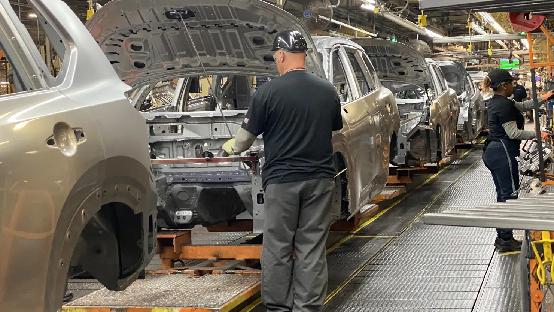
US President Donald Trump signed an executive order on Tuesday relaxing some of the car tariffs implemented by his administration earlier this month. Because the automotive industry is currently struggling to cope with regulatory uncertainty and additional costs arising from taxation. The 25% tariff on imported cars to the United States will continue, but the new measures aim to reduce the total tariff on vehicle imports resulting from separate taxation. According to this order, the additional 25% tariff originally scheduled to be imposed on automotive parts starting on May 3rd will still take effect, but vehicles that undergo final assembly in the United States will be eligible for partial tariff compensation within two years.
This adjustment is a partial revision of the comprehensive automobile tariff policy on March 27th, but the originally planned 25% tariff on automobile parts, which was scheduled to take effect on May 3rd, 2025, has been postponed and modified. The policy adjustment coincides with Trump's 100th anniversary celebration in Michigan, where the automotive industry contributes 3% of the country's GDP annually. Michigan is a traditional hub for automobile manufacturing in the United States and a key swing state in the 2025 election. This policy adjustment has a clear election strategy orientation and may be aimed at winning the support of blue collar voters. Six major organizations, including the American Automobile Drivers Association and the Automotive Innovation Alliance, have jointly warned that high tariffs will threaten nearly 10 million jobs and force the government to make concessions. Some senior executives of car companies even publicly criticize tariff policies for endangering supply chain stability and demand policy adjustments. This adjustment can also be seen as a phased achievement of its lobbying efforts.
After Trump signed the order to ease car tariffs, some companies expressed their approval but still remained cautious. Ford CEO Jim Farley appreciates the policy adjustments, but still emphasizes that the company still faces significant cost pressures. Stellantis Chairman John Elkann called the policy a "positive signal" and looked forward to further cooperation with the government. Although the issue of tariff overlap has been exempted, the 25% vehicle tariff and supply chain cost pressure still exist, and the industry believes that the actual relief effect is limited.
International analysts are concerned that the tariff adjustment is only a partial correction and fails to address the risk of downtime in the global supply chain caused by multiple tariffs, which has a more significant impact on small and medium-sized suppliers. More radicals criticize the policy as a short-term tool to appease domestic industries. Although this adjustment has eased the cost pressure on car companies, the government still retains the threat of tax increases on countries such as Canada, which may overdraw the US trade credibility in the long run.
This adjustment, through the "tiered tax refund" mechanism, will reduce the import cost of parts that comply with the USMCA agreement, allowing local car companies to save tens of millions of dollars in expenses and alleviate some of the profit pressure caused by multiple tariffs. The policy requires car companies to transfer their production and assembly to the United States to obtain tax refund eligibility and promote regional adjustments in the supply chain. However, the import of complete vehicles still maintains a 25% tariff, and the risk of delisting low-priced models has not been relieved. American consumers still face pressure from rising prices of new and used cars. However, the tiered tax rebate ratio is decreasing year by year, coupled with the uncertainty of Canadian tariffs. At the same time, tariff exemptions for raw materials such as steel and aluminum only cover enterprises that have already paid taxes. Small and medium-sized suppliers still face cost pressures, and there is still uncertainty about the stability of the domestic supply chain in the United States. Therefore, car companies still adopt a wait-and-see attitude towards long-term investment.
The tariff adjustment this time is essentially a compromise choice made by the Trump administration between domestic election pressure and industrial reality. Although it temporarily eases the conflict, it still exacerbates the fragmentation and uncertainty of the global automotive industry chain, which will drive up industry costs and delay technological innovation in the long run.

Amidst the global wave of technological transformation, artificial intelligence (AI) has become a key focus of competition among major tech giants.
Amidst the global wave of technological transformation, art…
In January 2026, the remarks by US Treasury Secretary Besse…
Less than three weeks into 2026, transatlantic trade relati…
On January 17, 2026, the Trump administration, under the pr…
When Musk set the goal of achieving a launch frequency of m…
A week after the largest nationwide protests in years, the …